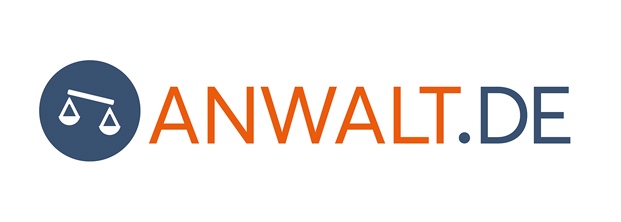Remote Work And Labor Laws: Adapting To The New Normal In Germany
As Germany embraces the surge of remote work, navigating labor laws has become a new frontier for workers and employers. With the rise of digital nomadism, flexible work arrangements have shifted from a temporary fix to a permanent feature in many industries.
In recent times, German companies have increasingly turned to hybrid work models – a trend fortified by social security laws that support employees working remotely within the country.
This shift presents unique challenges and unrivaled potential for shaping a productive and equitable virtual workplace. In this blog post, we guide you through these complexities toward clear solutions; understanding your rights as a remote worker in Germany could redefine your professional trajectory.
Dive deeper with us into this pressing topic!
The Rise of Remote Work in Germany
More people in Germany started working from home when the health crisis hit in 2020. This change was fast and big. Many workers turned their homes into offices and began doing their jobs without going to a traditional workplace.
Companies had to act quickly to keep things running smoothly while everyone was far apart.
Jobs that let you help customers from afar became very popular in Germany, especially in 2020. These remote jobs grew a lot—over three times more than before! Even though there isn’t a rule saying all jobs can be done from home, many businesses are giving their employees this choice.
Some have to provide it for special reasons. The government is also trying new ways to make remote work fit well with German laws and life. As people start returning to offices, they’re mixing home and office work more often than ever before.
Labor Laws for Remote Employees in Germany
Remote employees in Germany are protected by labor laws that cover minimum wage requirements, overtime regulations, workers’ compensation, and health and safety requirements. Employers need to understand these regulations when managing remote workers.
Minimum Wage Requirements
In Germany, any worker should make at least €12 an hour. This rule is for everyone, even if you work from a distance. Since October 2022, this has been the law. It went up from €9.82, which was the minimum before.
Employers must follow this law for all their workers. They need to check that they pay at least €12 every hour you work. If you work from home or anywhere else, your pay shouldn’t be less because you’re not in the office.
Your paycheck must show the right amount as per these wage requirements.
Overtime Regulations
German labor laws have clear rules about overtime work. Employers must track all their workers’ extra hours, including on holidays and Sundays. Even though German law does not make companies pay more for overtime, some work contracts or union agreements might say they have to.
Workers should know how many hours they can legally work each week. They also need to understand when they can say no to working overtime. Tax rules also change for those who cross state lines for remote jobs.
Monitoring these things as you plan your work week and report your taxes correctly is important. Now let’s talk about what happens with taxes in remote work situations.
Workers’ Compensation
Full-time employees in Germany are eligible for workers’ compensation if they are injured while working, regardless of whether they work remotely or at the company’s premises. This compensation covers medical expenses and lost wages due to the injury.
Employers must ensure remote workers can access this benefit when working from home, as they are still entitled to a safe and healthy work environment under German labor laws.
Moving on to another crucial aspect of labor laws for remote employees in Germany – minimum wage requirements.
Health and Safety Requirements
Employers in Germany must ensure that employees working remotely have access to a safe and healthy work environment. This includes providing necessary work equipment, such as ergonomic chairs and adequate computer screens, to prevent injuries or health issues related to prolonged sitting or poor posture.
Additionally, employers must consider mental health support for remote workers, as isolation and blurred boundaries between work and home life can impact well-being. Employers are responsible for upholding occupational health and safety standards even when their employees are working from home.
German labor laws require employers to take measures to guarantee occupational health and safety for remote workers. These measures involve providing the necessary tools for safe and healthy remote work environments while considering the psychological well-being of employees.
Tax Implications for Remote Work Across State Lines
If you work remotely from a different state or country, it can impact where you pay taxes. This means you may need to deal with tax laws in both your home state and the place where you are working remotely.
For example, if you live in one German state and work remotely from another, tax implications could affect how much tax you owe in each location. Additionally, when working internationally, remote employees should also consider social security implications and labor laws in both their home country and remote work location.
The rise of remote work has made it necessary for tax regulators to catch up with these changes as they have significant international taxation implications. As the number of people working remotely continues to grow, understanding the tax consequences becomes crucial for both employees and employers operating across state lines.
How Remote Work Affects Employee Health & Welfare Benefits
Remote work can bring positive benefits like flexible hours, but it may also lead to longer working hours and increased evening or weekend work. This can affect employee health and well-being by disrupting the balance between work and personal life.
Remote workers in Germany value a better work-life-balance, so employers need to consider the impact of extended working hours on their employees’ welfare.
To support employee health, companies should promote wellness initiatives and set clear boundaries around remote work hours. It’s essential to prioritize the well-being of remote workers by encouraging breaks, providing resources for physical and mental health, and promoting a healthy work-life balance.
Conclusion
Germany’s remote work landscape continues to evolve as labor laws and regulations adapt to the new normal. Employees enjoy legal rights and social security benefits even when working from home. If you think your employer may be acting outside of the confines of current German labour laws, do not hesitate to contact us.
As remote work becomes more prevalent, it is essential for both companies and workers to stay informed about the changing legal framework. Embracing flexibility while adhering to labor laws will be crucial for navigating the future of work in Germany.





